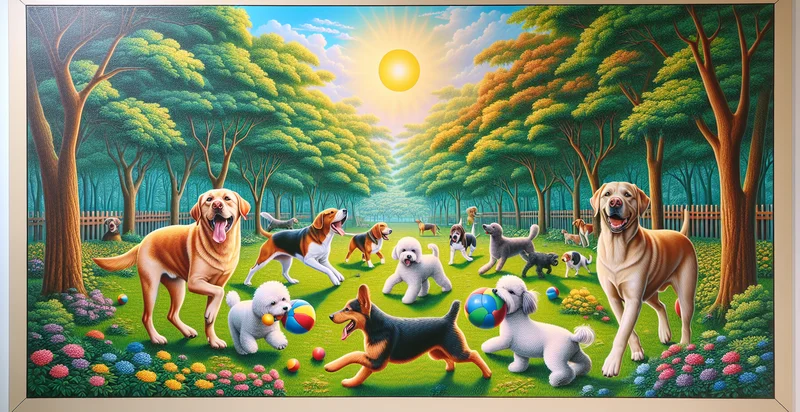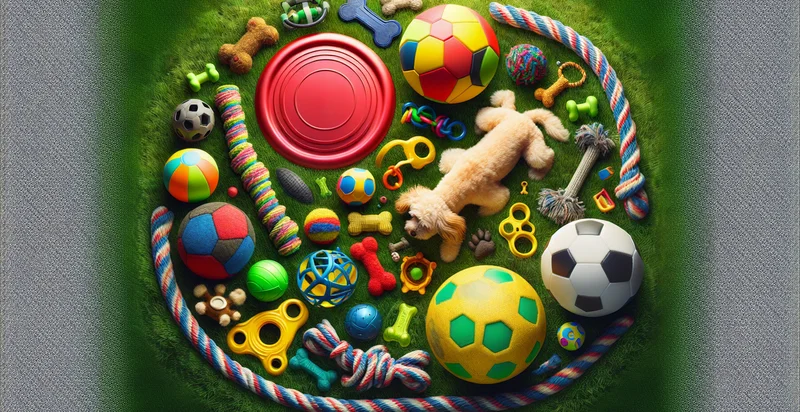Identify dog sociability
using AI
Below is a free classifier to identify dog sociability. Just upload your image, and our AI will predict how sociable a dog is with other dogs and people - in just seconds.

Contact us for API access
Or, use Nyckel to build highly-accurate custom classifiers in just minutes. No PhD required.
Get started
import nyckel
credentials = nyckel.Credentials("YOUR_CLIENT_ID", "YOUR_CLIENT_SECRET")
nyckel.invoke("dog-sociability", "your_image_url", credentials)
fetch('https://www.nyckel.com/v1/functions/dog-sociability/invoke', {
method: 'POST',
headers: {
'Authorization': 'Bearer ' + 'YOUR_BEARER_TOKEN',
'Content-Type': 'application/json',
},
body: JSON.stringify(
{"data": "your_image_url"}
)
})
.then(response => response.json())
.then(data => console.log(data));
curl -X POST \
-H "Content-Type: application/json" \
-H "Authorization: Bearer YOUR_BEARER_TOKEN" \
-d '{"data": "your_image_url"}' \
https://www.nyckel.com/v1/functions/dog-sociability/invoke
How this classifier works
To start, upload your image. Our AI tool will then predict how sociable a dog is with other dogs and people.
This pretrained image model uses a Nyckel-created dataset and has 20 labels, including Affectionate, Aggressive, Aloof, Calm, Curious, Dominant, Energetic, Friendly, Hesitant and Independent.
We'll also show a confidence score (the higher the number, the more confident the AI model is around how sociable a dog is with other dogs and people).
Whether you're just curious or building dog sociability detection into your application, we hope our classifier proves helpful.
Related Classifiers
Need to identify dog sociability at scale?
Get API or Zapier access to this classifier for free. It's perfect for:
- Pet Adoption Assessment: This function can be integrated into pet adoption platforms to evaluate a dog's sociability traits based on images submitted by potential adopters. By identifying friendly and sociable dogs, shelters can make better matches between pets and families, leading to higher adoption success rates.
- Dog Training Programs: Dog training facilities can use this image classification function to tailor sociability-based training programs. By assessing the sociability of each dog upon entry, trainers can group dogs with similar traits, optimizing interaction and socialization exercises.
- Dog Daycare Profiling: Daycare centers can implement this function to profile new dogs based on their sociability levels before admitting them. This will help ensure that sociable dogs are placed in compatible playgroups, reducing the risk of conflicts and enhancing overall customer satisfaction.
- Veterinary Practice Insights: Veterinary clinics can utilize this function to provide insights on canine behavior during routine check-ups. Understanding a dog's sociability can guide veterinarians in advising pet owners on socialization needs and potential behavioral issues.
- Dog Breeding Decisions: Breeders can leverage this classification tool to evaluate the sociability traits of potential breeding dogs. This will help them make informed decisions that promote desirable personality traits in future litters, enhancing the quality of the breed.
- Canine Research Studies: Researchers can employ this function to facilitate studies on dog behavior and sociability. By aggregating and analyzing data on different breeds, the findings can contribute to a deeper understanding of how genetics and environment affect canine social behaviors.
- Pet Insurance Risk Assessment: Pet insurance companies can include this function in their risk assessment protocols. By evaluating a dog’s sociability level, they can better predict potential behavioral-related claims and adjust premiums accordingly, leading to more balanced risk management strategies.


